Main content
Top content
Research projects
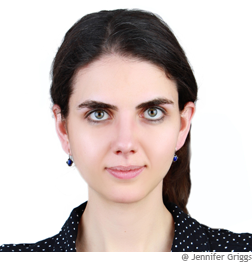
Dr. Jennifer Griggs
My research explores a philosophy of inter-religious dialogue, presented by the model of intellectual exchange in the medieval Islamic East; a period in which the Syriac churches lived under both Islamic and Mongol rule. My doctoral work investigated the 13th century maphrian of the Syriac Orthodox Church, Gregory Barhebraeus, and the influence of al-Ghazālī on the development of his mystical theology. As part of the Graduiertenkolleg, I explore more broadly the plurality of traditions that informed Barhebraeus’ writings across different genres, from the Aristotelian sciences to theology and mysticism. This was a plurality which reflected not only his own tradition, that of Syriac Christianity, but also the post-Avicennan tradition in the Islamic East, a tradition which may be characterised as informing a multiplicity of discourses within Islamic thought of the 13th century, from falasafa to kalām, as well as the different schools of philosophical Sufism. My research addresses key questions that I believe are central to the motivation of Barhebraeus in pursuing his intellectual engagement with the traditions of his religious ‘other’, and the problem of the incursion of Greek philosophy into the religious sciences.
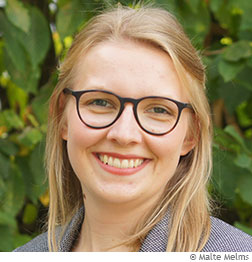
Annika Göbel
Strategies of (non-)communication in interreligious family constellations
This research project takes as its starting point, the increasing number of Christian-Muslim partnerships – contrary to reservations from an official religious law perspective – and thus from the real, everyday forms of human interreligious coexistence in Germany. This field often lacks models and evidence for such coexistence in the form of proven strategies for dealing with religious differences. At the same time, interreligious families are increasingly confronted with the prejudices of family members or society.
The project wants to investigate in more detail how religious differences are dealt with in Christian-Muslim partnerships and families. The aim is, on the one hand, to point out the needs of Christian-Muslim family constellations and, on the other hand, to develop further, practice-oriented considerations in fields of religious education and practical-theological action. In addition, the overarching question arises as to what a hermeneutics of interreligious dialogue within a family might look like. A related question would be whether and to what extent it is possible for such a hermeneutics of coexistence and dialogue within the ‘interreligious family’ might act as a model for more official forms of interreligious dialogue.
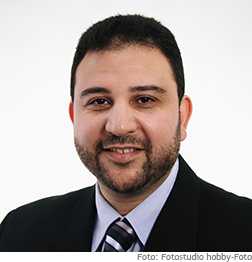
Mohamed Mansour
Poetry of Convivencia
Re-Reading of Arab-Andalusian poetry as a Christian-Islamic contact zone.
There is no doubt that the Iberian Peninsula is of outstanding importance for the historical exploration of interreligious dialogue. The epoch of the Andalusian society from 711 to 1492CE is being evaluated very differently by historians, who describe it either as a time of civilizational glory, or as one of cruel Islamic rule. With this controversial background, my research deals with the question of different ways of life and dynamics of peaceful coexistence of Muslims and Christians in this epoch. Indeed it is worthwhile to examine the coexistence of different cultures and religions in the life model of the Andalusian community from a different perspective. Andalusian poetry, with its various cultural, religious and ethnic traditions, represents an ideal experimental space for those forms of Convivencia. Life precedes poetry, and the diversity of poetry is based on the diversity of social spheres. The lived experience was poetized in an aesthetic form, and thus poetic fiction does not cancel out the experienced reality, but explains it and anchors it in human consciousness. The focus of this research is therefore to explore the Andalusian Islamic-Arabic poetry as a Christian-Islamic contact zone, which underwent a complex social dynamic, of variety and diversity. The project highlights encounters with the religious "other" through an interreligious re-reading.
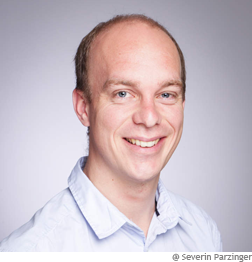
Severin Parzinger
Christian Indigenous practices of faith in the Chiquitanía region, Bolivia:
Shaping differences, dynamics of encounter.
Ritual practices are at the core of Christian indigenous religious traditions in the villages and towns in Chiquitanía, the region of former Jesuit missions of Chiquitos (1691-1767) in the Eastern Bolivian lowlands. The rituals are performed through rich symbols, presentations of sacred music and recitals of holy sermons in the indigenous language (sermones chiquitanos), as can be observed at big processions during Holy Week or the patron saints’ feasts. These practices of faith, understood as holy liturgies, open up a room for various encounters and multiple relationships - within the village or believers’ community, with animals and living beings in the surrounding areas, with pilgrims, with present members of other religious or cultural traditions, with the ancestors, with saints, with God…
In close cooperation with members and authorities of the chiquitano communities, this PhD research project is dedicated to a systematic theological analysis of the faith practices in Chiquitanía, as moments of multiple encounters and interactions with Others. Alongside this, it will ask whether and how the chiquitano faith practices can offer resources for dealing with increasing cultural and religious plurality.
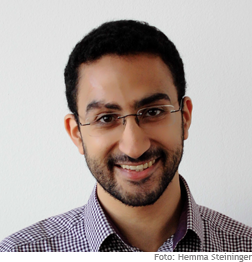
Adam Shehata
The Concept of the Soul in the Islamic Understanding of Man
Views of Selected Works of Qurʾānic Exegesis of the 11th to 13th century
In the Islamic theological view, the soul is one of the most important elements of man and is central for the understanding of humans. A significant part of the theological discussion on the nature of the soul, it’s positioning in this world and the hereafter and other related questions took place in the works of Qurʾānic exegesis of the 11th to 13th century. This phase of scholarship is also momentous, as its impact on discussions around this topic in the following centuries was of vital meaning.
In this context my research is dedicated to the analysis of selected works of Qurʾānic exegesis and the concepts of soul and man they maintain. The examination of the possible impact of Muslim-Christian encounter – next to the reading of antique philosophical texts – is also of interest. The deduced concepts of the soul and man will subsequently be examined for their significance for a Muslim understanding of life in a modern society. Finally, it will deal with the role these concepts play for interactions with religious and ideological plural constellations and a constructive forming of pluralism.
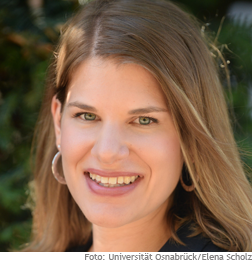
Anne Danielle Rüdel
Theatre as another place for interreligious encounter:
Religious diversity as a Theme of the Theatre Osnabrück
This project aims to identify how the theatre in Osnabrück deals with (inter-)religious topics and so indirectly contributes to interreligious encounter.
In recent years, the Theatre Osnabrück has repeatedly shown projects that deliberately deal with such questions. As a cultural institution and a secular place, the theatre here initiates a debate from a consciously non-theological perspective.
According to a cultural studies analysis of the interfaces between theatre, religion and social life in Osnabrück, different theatre projects will be examined and analysed.
In particular, projects were selected that address the topic of the coexistence of local religious communities and to promote interreligious dialogue with and within the Osnabrück public.
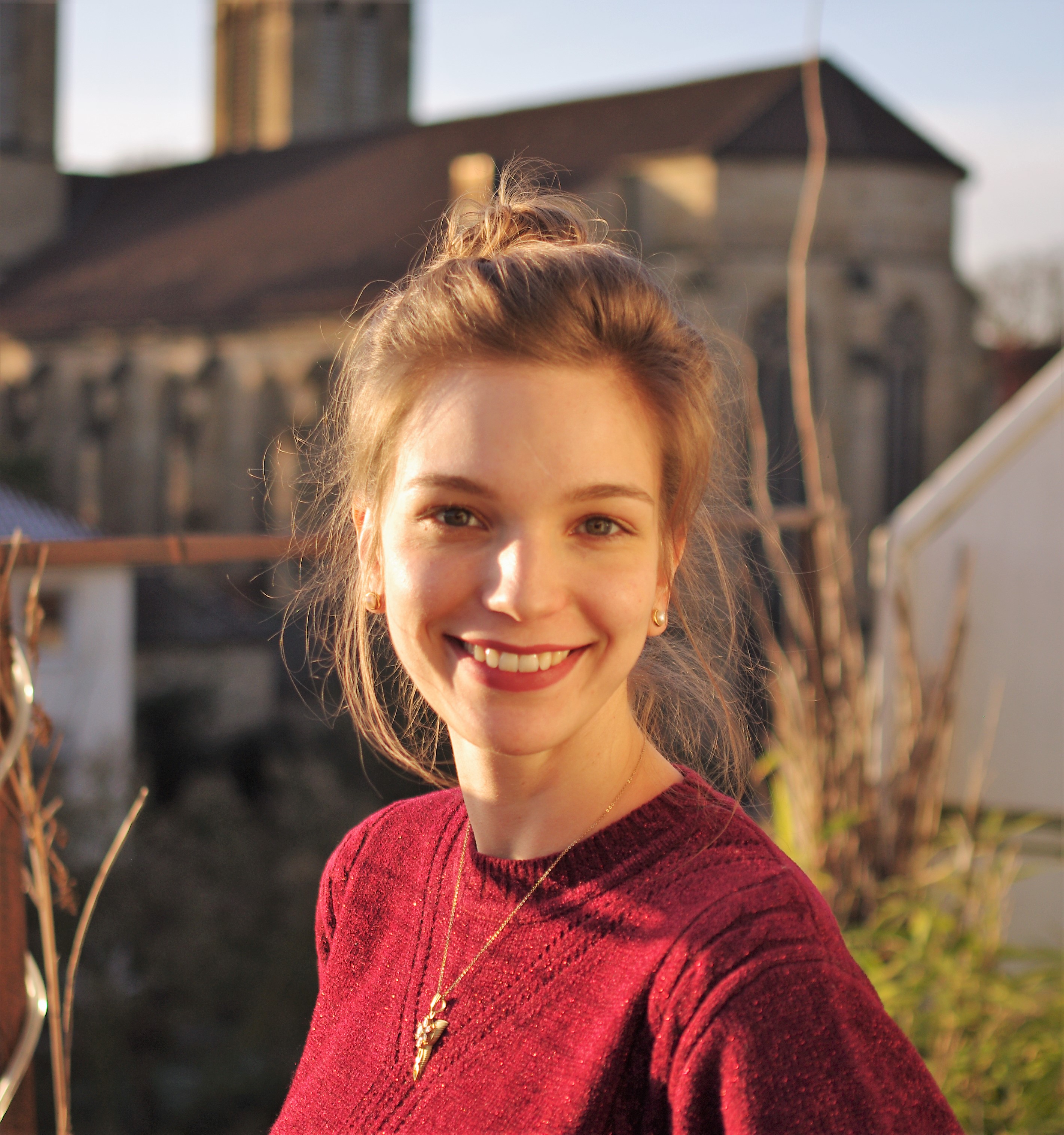
Foto: Lisa-Marie Krone
Lisa-Marie Krone
Personhood and Conscience
The Question of Evil in Hannah Arendt
In a society where the orientation towards common values is declining, the examination of questions concerning moral judgement and actions gathers an increasing urgency. Theology provides a specific competence concerning the discourse about moral capacities of humans. To this day, the question of evil still remains a key element when formulating a Christian concept of mankind. A debate is still taking place about how to understand and explain evil in God’s creation. Many reflections on the question of evil that are relevant for this theological context can be found in the works of the political theorist Hannah Arendt.
In this doctoral project, the creaturehood and godlikeness of man as well as the resulting ability to moral actions serve as the link between the Christian idea of conscience and Arendt’s anthropology. Indeed these doctrines complete and enhance each other. On the one hand there is the specifically Christian perspective arising from the discipline of moral theology, allowing for an amplified and inspired understanding of ethics. On the other, Arendt’s link to practical living conditions facilitates the perception of humans as part of a pluralistic, political-social environment.
Building on this foundation, this doctoral project will provide a new point of view from the perspective of moral theology, for the question of evil.

